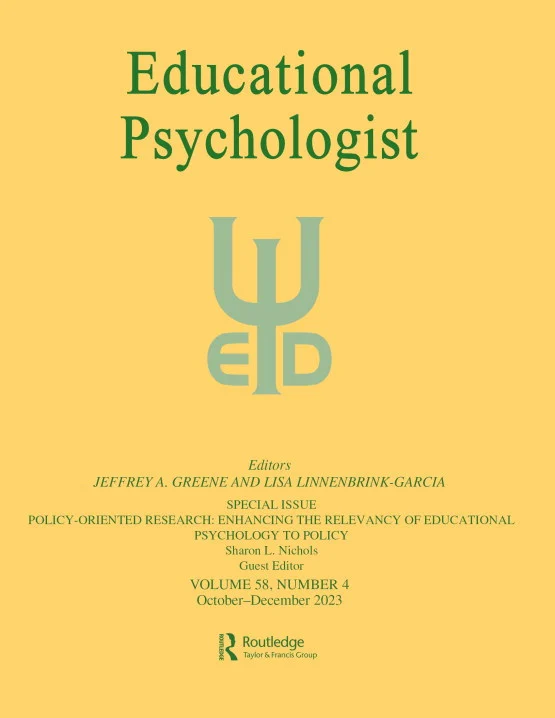在线学习的公平性
IF 11.4
1区 心理学
Q1 EDUCATION & EDUCATIONAL RESEARCH
引用次数: 29
摘要
在线学习结果表明,在线学习与面对面学习之间存在差距,并且这种差距在低收入和少数民族学习者中进一步扩大。来自K-16的研究证据揭示了在线课程获取的公平性问题;学生出勤率及成绩;以及最近大流行的影响。本文采用Warschauer的数字包容资源概念框架(物理、人力和社会),将疫情导致的向应急远程学习转变过程中出现的公平性问题概念化。该框架揭示了所有三个领域的公平问题,从突然将数百万人转移到在线学习环境中,而没有:必要的最新计算机和宽带互联网接入,在结构较松散的在线课程中取得成功所需的技能,或接受过有效在线授课培训的教师。最后,我们利用Warschauer的框架来讨论如何解决这些问题,增加在线学习的公平性,以及研究方向。本文章由计算机程序翻译,如有差异,请以英文原文为准。
Equity in online learning
Abstract Online learning outcomes have indicated both a gap between online and face-to-face learning and the amplification of this gap for low-income and minority learners. Evidence from studies across K–16 reveals equity issues regarding access to online courses; student attendance and achievement; and, most recently, the impact of the pandemic. This article uses Warschauer’s conceptual framework of resources that shape digital inclusion—physical, human, and social—to conceptualize the equity concerns that arose during the pandemic-induced shift to emergency distance learning. This framework reveals equity issues across all three areas from abruptly moving millions into online learning environments without: requisite access to up-to-date computers and broadband internet access, the skills needed to succeed in less structured online classes, or teachers trained to effectively conduct classes online. Finally, we leverage Warschauer’s framework to discuss ways to address these concerns and increase equity in online learning, as well as directions for research.
求助全文
通过发布文献求助,成功后即可免费获取论文全文。
去求助
来源期刊

Educational Psychologist
Multiple-
CiteScore
19.10
自引率
3.40%
发文量
16
期刊介绍:
The Educational Psychologist is a scholarly journal dedicated to exploring the psychology of learning and instruction. Articles in this journal encompass a diverse range of perspectives, from examining psychological mechanisms to exploring social and societal phenomena related to learning and instruction. The journal publishes theoretical and conceptual articles, as well as reviews and meta-analyses, that significantly contribute to theory or advance the methods used to explore educational psychology. Emphasizing innovation and advancing understanding, the journal does not publish articles solely reporting the methods and results of empirical studies; instead, all submissions, including reviews and meta-analyses, must offer clear implications for advancing theory. In addition to regular articles, the journal features special issues that delve into important themes in educational psychology, along with focal articles accompanied by peer commentary.
 求助内容:
求助内容: 应助结果提醒方式:
应助结果提醒方式:


